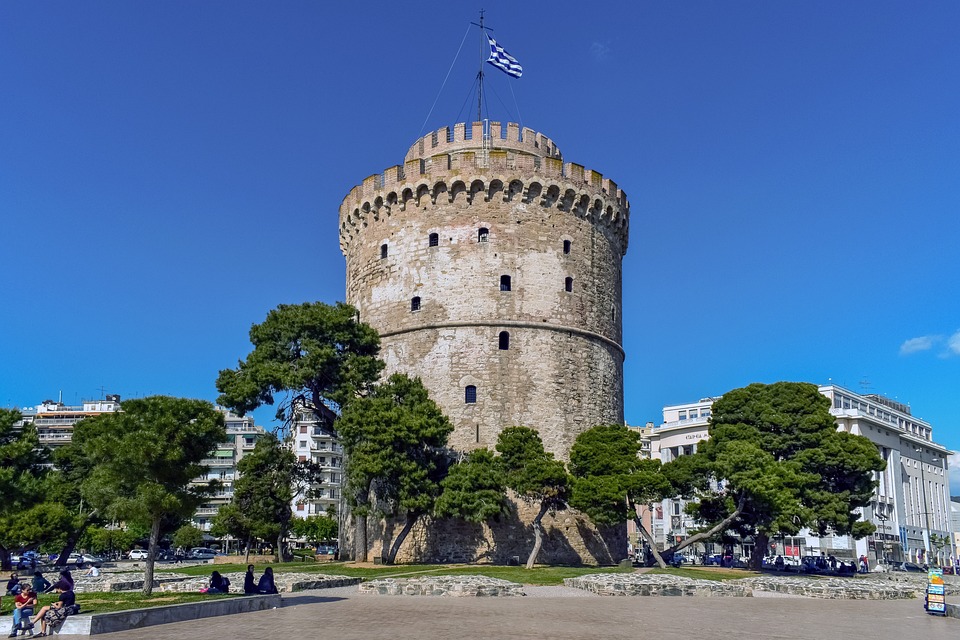A majority of Christians in the present day consider that their religion entails seeing heterosexual, monogamous, and procreative sexual activity because the norm. African Anglicans and Russian Orthodox denounce homosexuality as a harbinger of Western degeneration; the pope joins American evangelicals in detesting abortion. The Holy Household stands with the nuclear household. Diarmaid MacCulloch’s irritation at such ahistorical conservatism has moved him to trace the sheer number of Christian theologies of intercourse over the ages with Gibbonian wit and occasional asperity. Decrease than the Angels is an intricate survey with a transparent ethical: Christians ought to assume twice earlier than casting the primary stone.
The Bible was all the time too contradictory and opaque to rule Christian considering on gender or sexuality. The foreign money and that means of proof texts fluctuated with the ambitions of Church leaders and the elites to which they catered. Exterior influences mattered too. Christians absorbed monogamy from the Classical societies by which they had been at first an invisible minority, even when they abhorred their resort to abortion and infanticide. They studiously missed the polygamists of the Hebrew scriptures, simply as they rejected male genital mutilation. Their puritanism was additionally extra Classical than Jewish. Loads of wild males – and a few wild girls – in Egypt and Syria tried to relinquish sexuality altogether, with Origen even castrating himself. But influential theologians emulated Roman thinkers in calling males to indicate self-restraint, however not abstinence, of their sexual lives.
The New Testomony inspired this chastened attachment to marriage. Paul really useful that it was higher to marry than to burn with lust. He additionally stated that husbands and wives owed one another sexual satisfaction – the ‘marital debt’. The primary factor was to not get carried away: Jerome condemned males who cherished their wives an excessive amount of as adulterers. Solely within the East had been attitudes much less neurotic. As a result of Greek theologians regarded all sexuality as fallen, they had been much less flustered about what kind or diploma of intercourse was sinful. Societies resembling Russia that adopted Orthodoxy inherited this ‘sane as a result of sex-negative’ strategy.
Missionaries past Rome had a tough job in getting pagan societies to just accept the austere mores of the Mediterranean. Its elites had been loath to surrender the concubines whose youngsters ensured their organic succession. Elsewhere too, Christians bent to the necessities of the highly effective. Bishops from the Dyophysite Church of the East couldn’t comply with their Western counterparts in adopting celibacy, as a result of it was a capital crime in Zoroastrian Iran.
It due to this fact took centuries to construct Christendom – the phrase is an Anglo-Saxon coinage for a sacred society permeated with Christian morals. From the eleventh century, a crusader papacy with a newly exalted imaginative and prescient of the Eucharist demanded celibacy from the clergymen who celebrated that mysterious sacrifice. The onus was now on the laity to copulate. The clergy now presided over marriages, which joined the Eucharist as considered one of seven sacraments. Spirituality now embodied household values: Joseph grew to become a venerable determine, relatively than a complication for the perpetual virginity of Mary; Christians adorned cribs and visited ‘Holy Homes’ at Walshingham and Loreto, childhood properties of Jesus that had miraculously landed there from Palestine.
Prices of sexual in addition to mental deviance motivated the persecution of heretics: the Bogomils of Bulgaria had been the primary ‘buggers’. Christians, who massacred Jews after accusing them of desecrating Eucharistic wafers and murdering saintly youngsters, now represented the circumcision of Christ as their first act of sacrilegious violence. Their hatred had its blind spots. There was no concerted harrying of homosexuals. Monks had been free of their homosocial cloisters to develop a wealthy literature of mutual infatuation. Spirituality and mysticism had been gender fluid, with beardless angels symbolising life past sexual binaries.
The Reformation challenged however lastly restated the code of Christendom in a unique key. Protestant ministers who rejected celibacy introduced their new households as fashions of monogamy. Martin Luther’s scriptural defence of polygamy discovered few takers and was shortly forgotten. Tolerance for prostitution and kids born out of wedlock declined.
Though each Protestantism and Catholicism relaxed their grip on Western societies within the 18th and nineteenth centuries, it’s unclear how shortly sexual behaviour shifted consequently. MacCulloch means that commerce, print, and urbanisation freed minds and our bodies from clerical management. He takes an ‘considerable quantity’ of trans marriages as one excessive water mark of this emancipation – though the monograph he cites discovered solely ‘dozens’ of such circumstances. And whereas Christendom wobbled at dwelling, missionaries exported its clenched mores to the extra-European world.
It was technological change that actually scuppered the church buildings. The rubber condom and the contraceptive tablet separated intercourse from procreation, making intercourse enjoyable and undermining the argument that homosexuality was towards nature. Some Christians responded extra nimbly than others. MacCulloch credit his fellow Anglicans with readily taking to condoms and the defence of Girl Chatterley’s Lover. Against this, Rome’s sad celibates made its establishments hotbeds of sexual abuse and ‘toxic silence’. Pope Paul VI’s fossilised imaginative and prescient of pure legislation prompted his last-ditch stand towards contraception in 1968.
The sixties might not have swung for Catholics, however MacCulloch’s conclusions breathe the optimism of that decade. Ever extra folks will comply with their genuine wishes in future, with the blessing of Jesus, a ‘playful’ instructor harmless of the repression based on his title. This oddly frictionless view of future intercourse expresses a liberal Anglican hope that such lingering prejudices as homophobia are peculiarly Christian types of bigotry, which can fade when the church buildings full their enlightenment. It’s the final and definitely the nicest of the religion commitments charted on this compelling e-book.
-
Decrease than the Angels: A Historical past of Intercourse and Christianity
Diarmaid MacCulloch
Allen Lane, 688pp, £35
Purchase from bookshop.org (affiliate hyperlink)
Michael Ledger-Lomas is a historian of faith.
